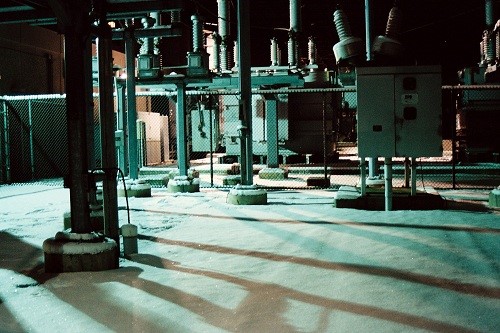 My IT team moves each month, checking systems and servers for vulnerabilities. Datacenters in Brazil, London, Argentina, Chile, now Rome. My life is full of rush rush rush, to the next month, the next assignment.
My IT team moves each month, checking systems and servers for vulnerabilities. Datacenters in Brazil, London, Argentina, Chile, now Rome. My life is full of rush rush rush, to the next month, the next assignment.
On the way to Rome, the plane rocks itself to the ground. We land safely, knocked to our feet on this crusted but penetrable world. Italian words, life, its movements, echo off the airport walls.
This month, things are different. I am the team leader for the first time. We stay in the airport hotel, and I can still hear the roars of rising planes, the concussions of landings, even though, for the moment, I am still. I call home. My mother announces she has been diagnosed with cancer. That night, I dream of giant, hulking, metal-and-silicon mainframes plugged into the ocean sand like beached whales. The mainframes fizzle and crackle with sparks as we bucket water over their metal shells. We know we cannot save them, their invisible information, their electric memory, but we try.
I eat dinner with my aunt who, having married an Italian, lives in Rome. My aunt asks about my life, and I work up to my mother having cancer. She tells me about my parents back when they were young in Dominican Republic. She speaks in her native Spanish, but she dips into Italian, her phrases punctuated by certo, prego, and her accent is now definitely Italian, foreign, after years. She tells me my parents’ nannies knew each other and would take them both for walks near the sea, in the parks on el malecón. The nannies taught them how to crack the almonds, littering the ground, open with rocks. The nannies taught them the word for almonds: almendras.
The summers when I would go to Dominican Republic loaded with stories of my parents’ past, I tried to excavate their lives, but everything had changed, the people had aged, the places were gone. There was no way to visit the past except through words, and to add other words to my heart’s lexicon, which now includes: almendras, cancer, fear, movement, change, death. I tried to visit my great-grandmother’s house, where my parents had dinner every Sunday, where once an escaped orangutan had climbed over the fence from the next door zoológico, stuck his tongue out behind my great-grandmother during lunch time, and thrown them all into hysterics. The house had been bulldozed. In its lot there was now a Mormon church.
Each month, I move on to a new place. In movement, our histories follow us like capes. I sometimes know the language, sometimes not. I have noticed a human incapacity, that regardless of the language, words give us only the world we already know. Because if I say love, I might remember climbing trees on the shores of Lake Ontario, or standing on the ridge of Sandia Mountain with a boy I once loved. It was night, the first time I’d ever seen the Milky Way, and it looked like we were standing at the edge of the crust of the world, the entire galaxy in front of us. But when I tell my mother I love her after she tells me the diagnosis, she will think of none of these things. She might think of some secret memory. Or she might remember being a toddler with my father, learning how to careen the rocks into almonds and reveal the pale meat inside. The life inside.
I return from Rome early to go with my mother to the oncologist. I board a plane. According to relativity, the speed of planes adds nanoseconds to my life. We are drowning in movement. Inertia. The rush rush rush. We board trains, we hail cabs, we let planes steal us up. We put ourselves in rocket ships towards the moon and wait for the world to spin like roulette underneath us. My mother will be digging compulsively in her purse as we wait for her first chemo, tangling the lines of the IV with her frenzied movement, and I will tell her to just sit, and I will feel guilty for my tone.
But before that, on the plane back from Rome, I wait for takeoff in the heaving night. The world spins its turn underneath our restless feet. Wheels grind into the concrete skin of the runway, and we hope, as inertia pushes us back in our seats, that we will not come apart, that we will not fall.
—
Brenda Peynado is a Kingsbury Fellow in Florida State University’s MFA program. Once upon a time, she was an IT Auditor for IBM. Now, she writes and plays frisbee with her scruffy white terrier.
Photo by Maria Romasco-Moore

1 comment
“Almendras” in Brevity 38 | Brenda Peynado says:
Oct 5, 2013
[…] https://brevitymag.com/nonfiction/almendras/ […]